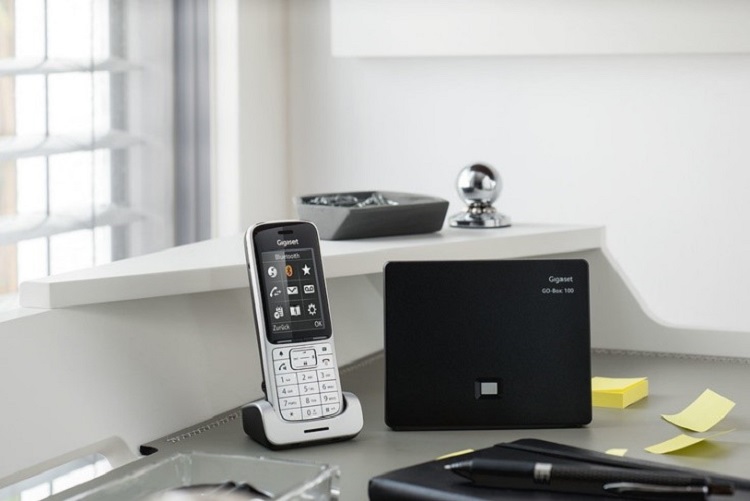
Solid as a rock: the landline phone
21. June 2019 Published by Raphael DoerrPeople are becoming more and more mobile, working flexibly, and also managing their life while on the move. 2018 was the first-ever year in which more calls were made by mobile phone than from landline connections. Yet life for many is unimaginable without the phone at home. And there are three prime reasons for that: the voice quality, stable connection and low radiation of landline phones.
Germany is the country of dead spots and poor network coverage – even in cities with tens of thousands of inhabitants. While the cellphone or smartphone has often become a substitute for the fixed-line network in big cities like Hamburg, Munich or Berlin, the telephone at home is still very important in more rural regions. Yet it should also be important everywhere. On account of its unbeatable advantages: Reception is totally stable – anywhere in the home. In contrast, a mobile signal is weakened to a greater or lesser extent, depending on the building’s fabric. That means poor reception and voice quality. The fixed network with VoIP call quality impresses across the board in this regard. Along with the right terminal devices, HD voice offers a quantum leap – callers hear each other with a fuller sound and feel they are closer than with a conventional phone call.
Top quality, low radiation
If the network is poor, a cellphone or smartphone increases its transmitting power. It’s not clear whether that has a long-term impact on human health. But one thing is certain: Less radiation is definitely better. Thanks to ECO DECT, Gigaset’s handsets do not emit any radiation at all when they are in standby mode. And during a call, their transmitting power is only as high as is needed to ensure a stable connection to the base station. The closer the handset is, the lower the power. That not only reduces radiation exposure, but also saves electricity.
Only a landline phone in the office
Mobile connections are prone to problems and so often a bother for making business calls. Yet companies who nevertheless want to give their employees flexibility and mobility rely on cordless DECT handsets, which work seamlessly with existing physical or cloud telephone systems. Single or multicell systems are used, depending on the area to be covered, and can even be included to cover several stories or buildings. For especially demanding telephony needs for receptions or CEO office staff, Gigaset offers its established, high-quality Maxwell series with every conceivable convenience feature.
Phoning without a handset and keys
Yet the fixed-line network can do even more with DECT, as evidenced by the new Gigaset L800HX smart speaker, a device that is a voice-controlled speaker and landline phone in one. When used with a DECT base station or compatible routers, such as the FritzBox or Speedport, it can call any other landline or mobile number. A short voice command such as “Alexa, call Tom” is all it takes. Incoming calls can be taken by calling out to the speaker – which is especially practical if you have your hands full in the kitchen, for instance. With its refined microphone technology and echo cancellation, the L800HX ensures that calls can be understood very clearly, even when there’s a large group of people around – such as in a family conference or when business calls are made in small offices.

 en
en 









7 Comments
This is nice blog
Its great
Very nice
Its really nice and great blog
Outstanding
Awesome blog , worth reading .Thank you for sharing . keep it up.
Hello,
thank you very much for your feedback!
Kind regards